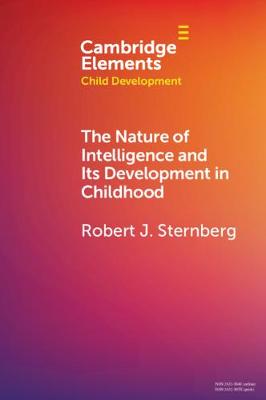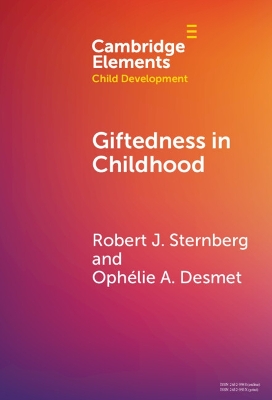Elements in Child Development
2 total works
The Nature of Intelligence and Its Development in Childhood
by Robert J. Sternberg
Published 2 November 2020
In this Element, I first introduce intelligence in terms of historical definitions. I show that intelligence, as conceived even by the originators of the first intelligence tests, Alfred Binet and David Wechsler, is a much broader construct than just scores on narrow tests of intelligence and their proxies. I then review the major approaches to understanding intelligence and its development: the psychometric (test-based), cognitive and neurocognitive (intelligence as a set of brain-based cognitive representations and processes), systems, cultural, and developmental. These approaches, taken together, present a much more complex portrait of intelligence and its development than the one that would be ascertained just from scores on intelligence tests. Finally, I draw some take-away conclusions.
Giftedness often is defined in a transactional way: individuals give something in return for getting something from authorities who label them as gifted; the labeling authority then expects those individuals identified as 'gifted' to act in ways that justify the label. The authors place emphasis on transformational giftedness-giftedness that serves to make the world a better place. This Element stresses the importance of intelligence, not of the kind of narrow intelligence measured by IQ tests and their proxies, but rather the kind of broad intelligence used to adapt to a variety of real-world environments. The authors further discuss the nature of dual exceptionality, whereby individuals may be identified as having a disability yet at the same time act in gifted ways and thereby harbor the potential to contribute to the world in some distinguished fashion.

